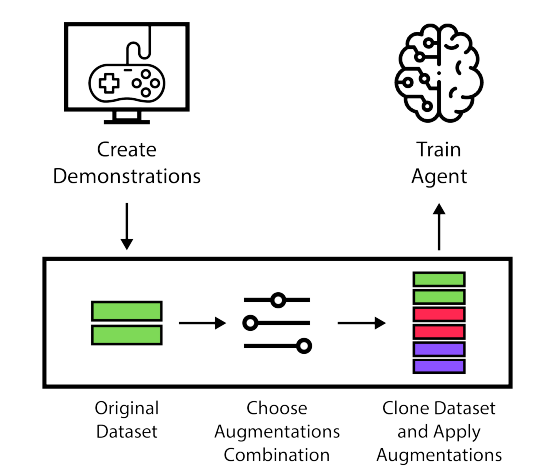Researchers from Uppsala University and SEED – Electronic Arts (EA) has brought methodologies in the domain of Game Artificial Intelligence. The focus is to enhance the generalization capabilities of game agents through refined data augmentation techniques in imitation learning, addressing the prevailing challenges in game AI related to adaptability and efficiency in varying gaming scenarios.
The primary aim of this research was to resolve the challenges associated with the generalization capabilities of game AI, enabling game agents to make informed and effective decisions beyond their training parameters. Despite the advancements in imitation learning (IL) which has enabled game designers to efficiently guide game agents, there exists a significant impediment related to generalization within this domain.
To address this, the study leverages the principles and successes of data augmentation witnessed in supervised learning. By augmenting the training data to represent real state–action distribution more accurately, the focus was placed predominantly on feature-based state spaces. The study underwent a detailed evaluation of various data augmentation techniques, such as Gaussian noise and scaling, to ascertain their effectiveness across different Game Agents IL settings.
 The findings from this research are noteworthy, demonstrating the potential of data augmentation in enhancing the generalization of imitation learning agents. This is vital for progressing research and development in game Agents. The conclusions drawn from this study serve as a significant step forward, offering insights and directions for future research in the field, and highlighting the potential for the development of more adaptive and resilient game agents, without compromising the integrity and depth of the scientific inquiry.
The findings from this research are noteworthy, demonstrating the potential of data augmentation in enhancing the generalization of imitation learning agents. This is vital for progressing research and development in game Agents. The conclusions drawn from this study serve as a significant step forward, offering insights and directions for future research in the field, and highlighting the potential for the development of more adaptive and resilient game agents, without compromising the integrity and depth of the scientific inquiry.
Check full paper: https://arxiv.org/abs/2309.12815






